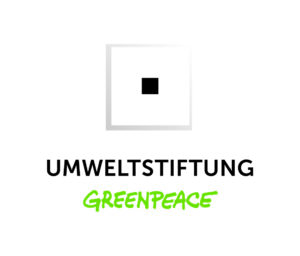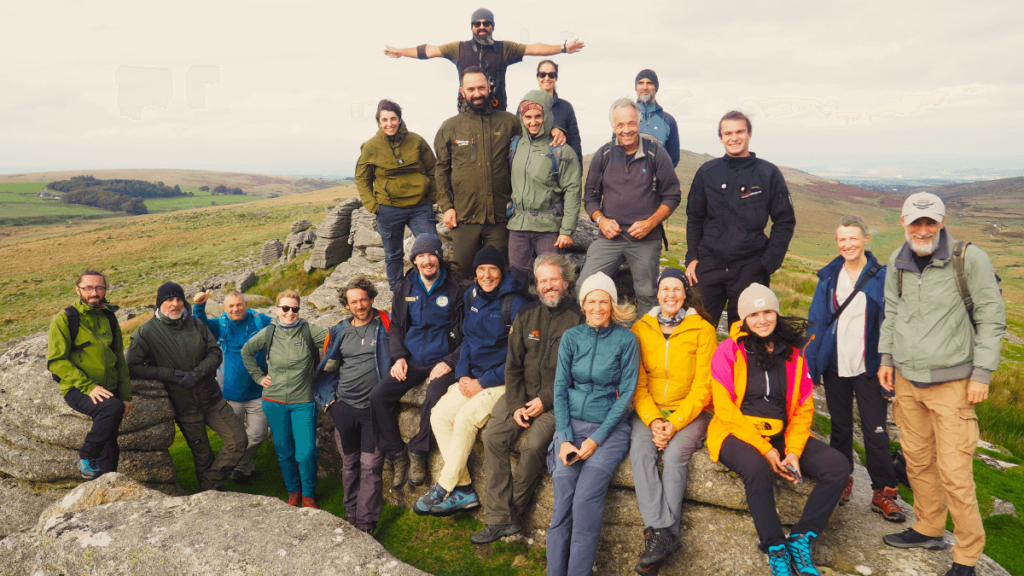Last week 20 rangers of 13 European countries met in Dartmoor National Park, UK, for our Image & Fundraising Workshop. The aim: raising awareness about the importance of rangers through image work and finding fundraising strategies. As a starting point, the participants easily agreed on a list of ranger tasks that deliver on global conservation goals.
It is easy to lose courage when following the facts about the current sixth mass extinction in world history or the “points of no return” already reached in climate change. But there are important staff who deal with these very threats to all life on our planet in their daily work. Rangers are an important professional group implementing much of the Sustainable Development Goals (SDGs) declared by the UN as central to maintaining a healthy and livable planet.
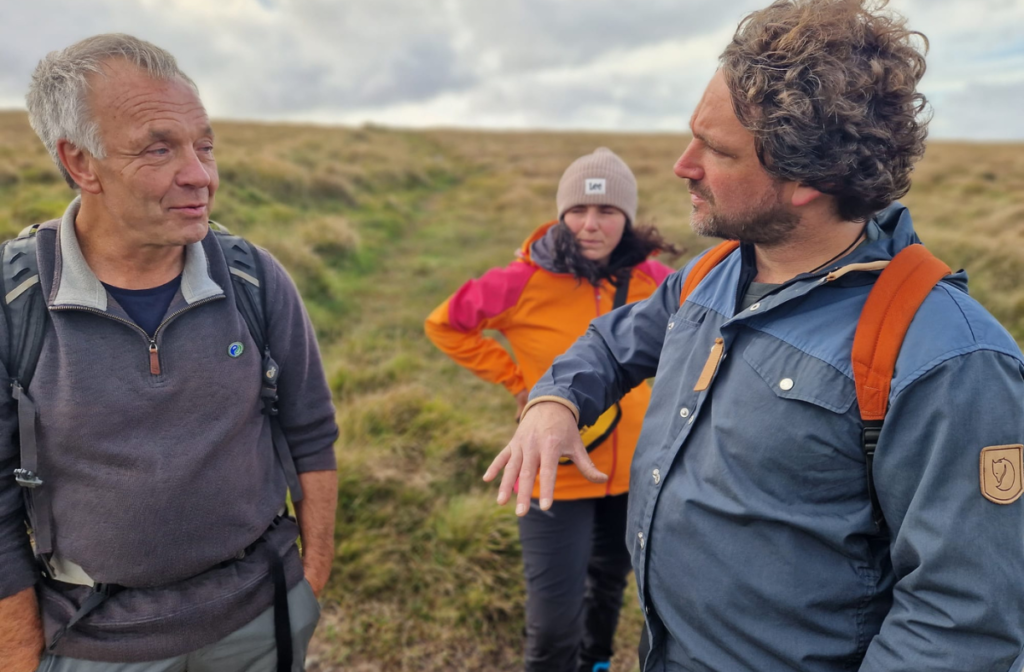
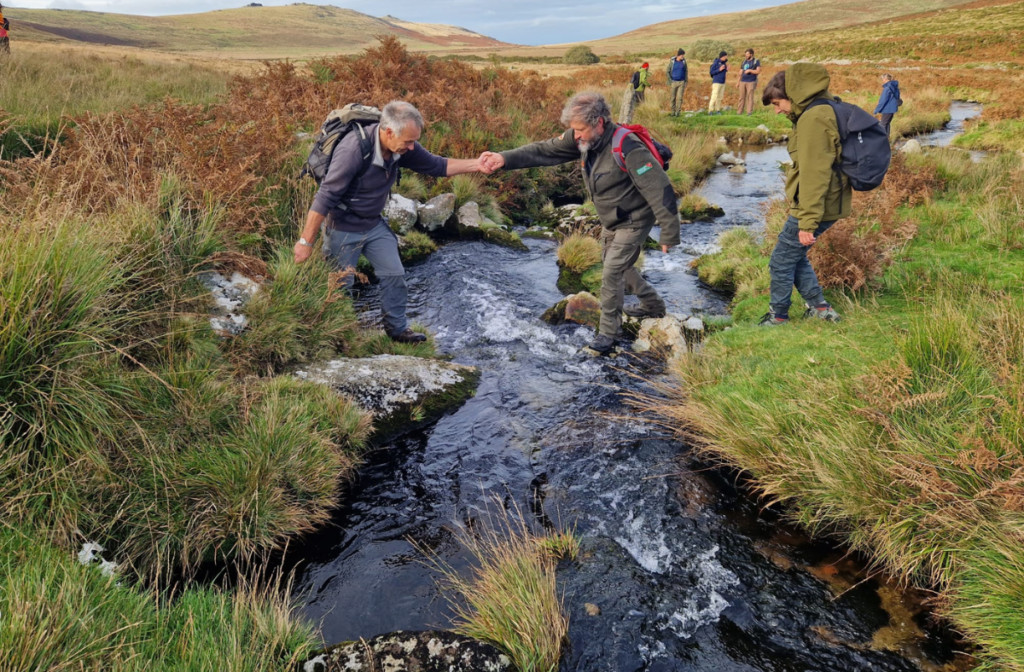
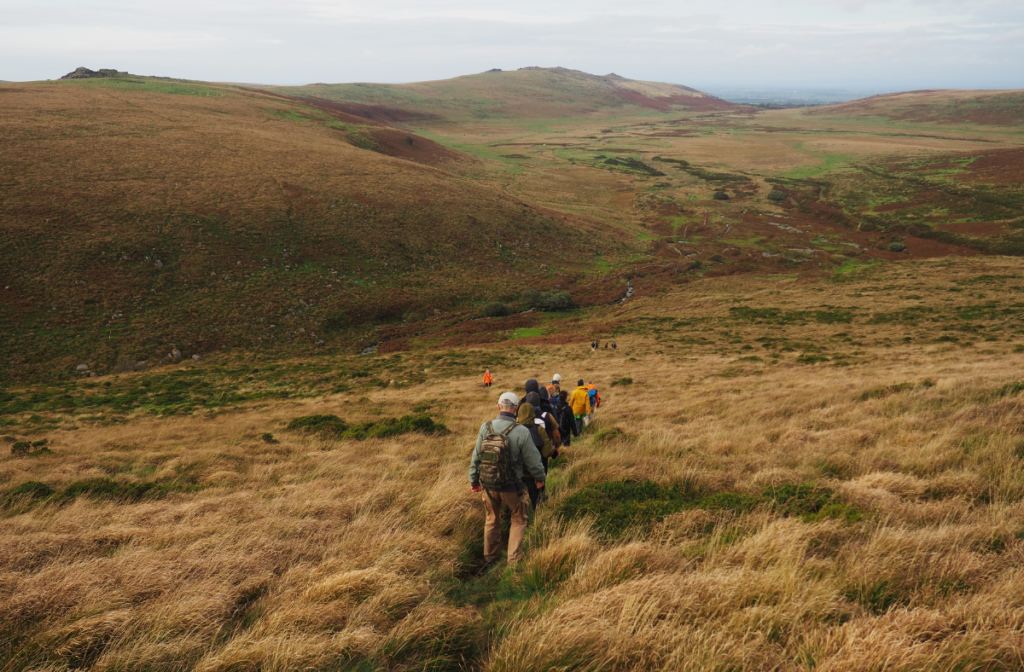
Closing the gap between conservation policy and its implementation by rangers
Yet there is a gap between global conservation strategies and their implementation by rangers: Although the global community agreed at the last UN Biodiversity Conference (COP 15) to expand protected areas to cover 30 percent of land and marine areas by 2030, there are far too few rangers to ensure that these areas are actually protected on the ground. In addition, rangers’ jobs are often poorly paid and their representatives are hardly heard by global conservation policy makers.
To address precisely these shortcomings in the European region of the world, the European Ranger Federation (ERF) has invited ranger representatives from all over Europe. Last week, 20 European rangers, including the ERF Board, met in Dartmoor National Park in the UK to work together on an image for European rangers that will make their voice heard and boost fundraising, and conversely think about fundraising strategies that will help improve the image but also address the lack of staff, training and materials.
Hands on ideas to make funders understand the need to invest in ranger work
Three intensive days of work in the secluded and familiar atmosphere of Bernard’s Acre, a self-catering chalet-style accommodation at the foot of some of Dartmoor’s highest parts, are behind the group with delegates from 13 countries. Participants reported from their experiences in their respective countries on the challenges they face in terms of image and fundraising. And they developed practical ideas: How to make the public more aware of the importance of the ranger profession for the survival of our planet, and how to make funders understand that there is a need in society for more ranger work – and that rangers should not, conversely, depend on society’s goodwill to earn a living.
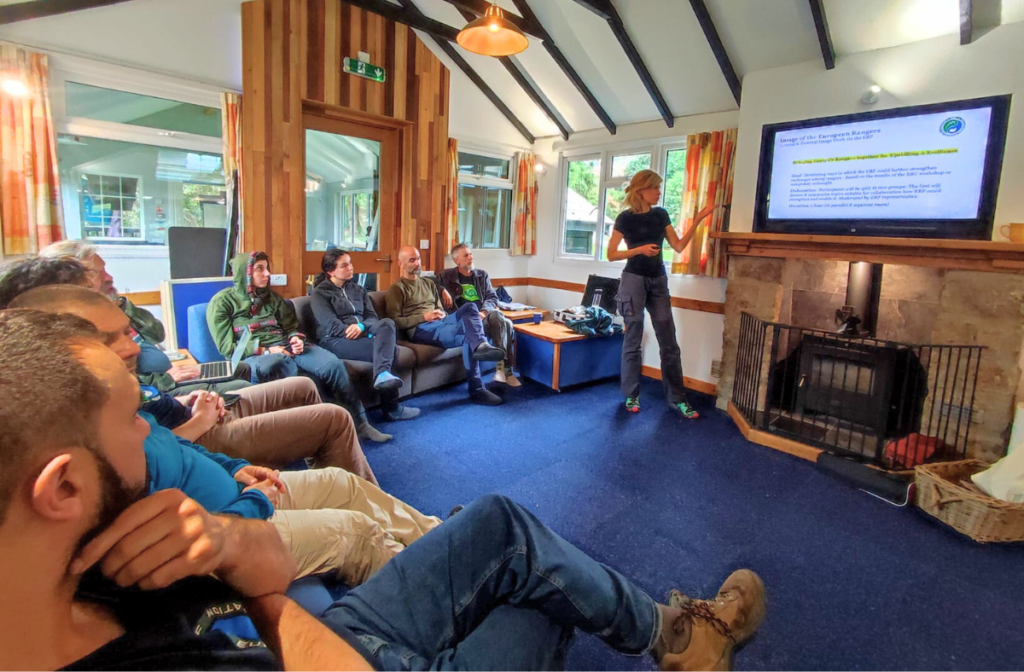
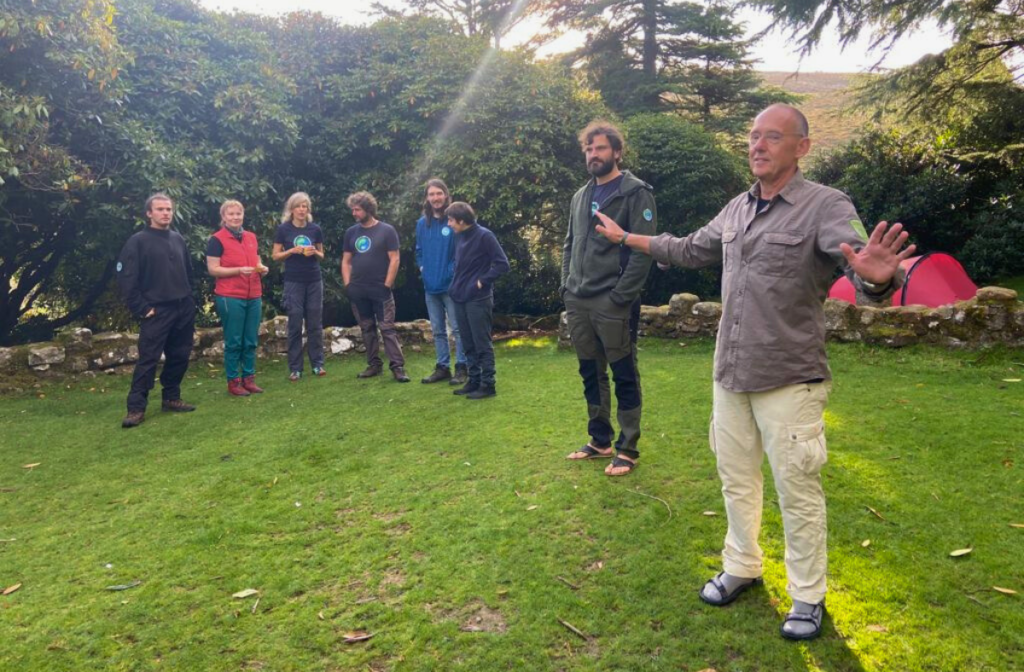
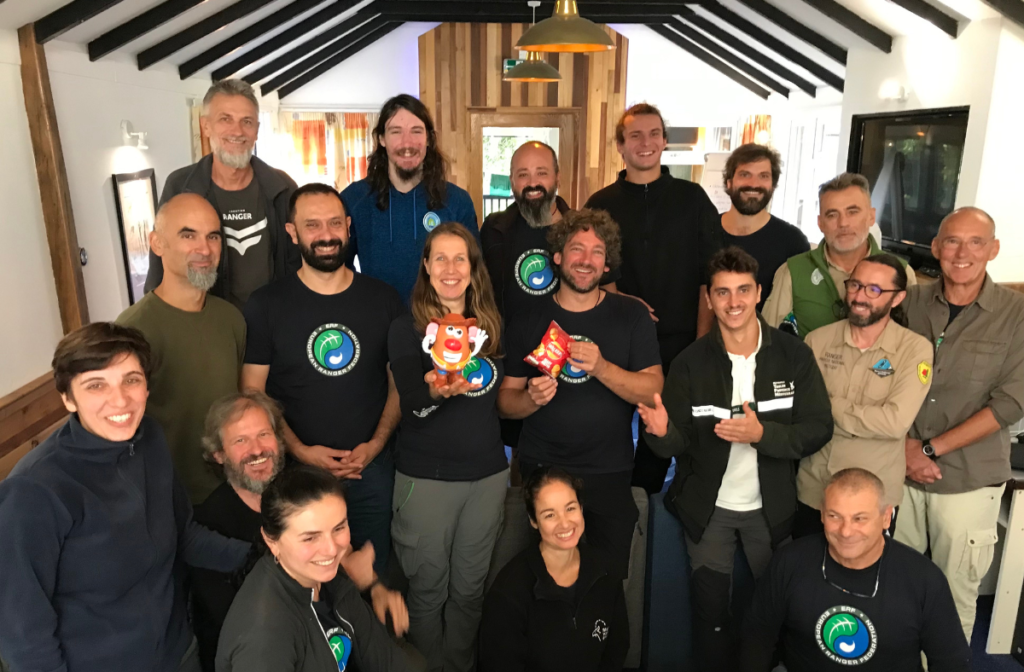
Whether one looks at the concept of ecosystem services, i.e. calculating the monetary value of natural services such as carbon dioxide storage or pollination, or at the UN’s SDG targets: Participants easily found lists of ranger tasks that contribute to the conservation of the former and pretty much all of the latter.
Strong starting point for boosting image and fundraising work of Europe’s rangers
With this valuable input behind its back, the European Ranger Federation will now continue its work to improve fundraising and image work hand in hand with the ranger associations in the European countries. Because it is high time that rangers are enabled to fulfil their first and most important task: saving our planet.
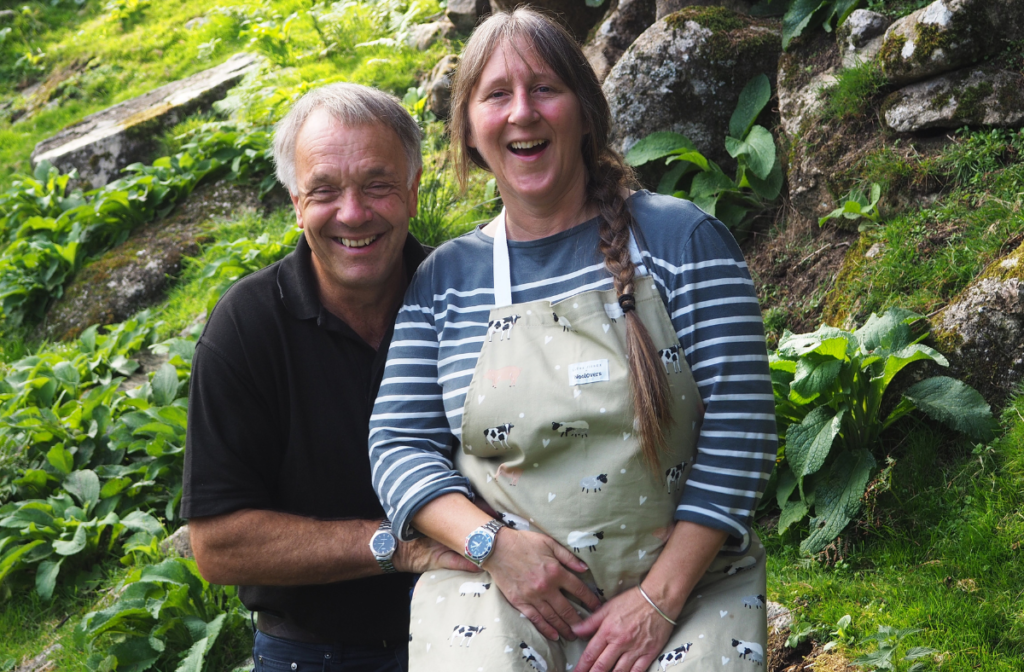
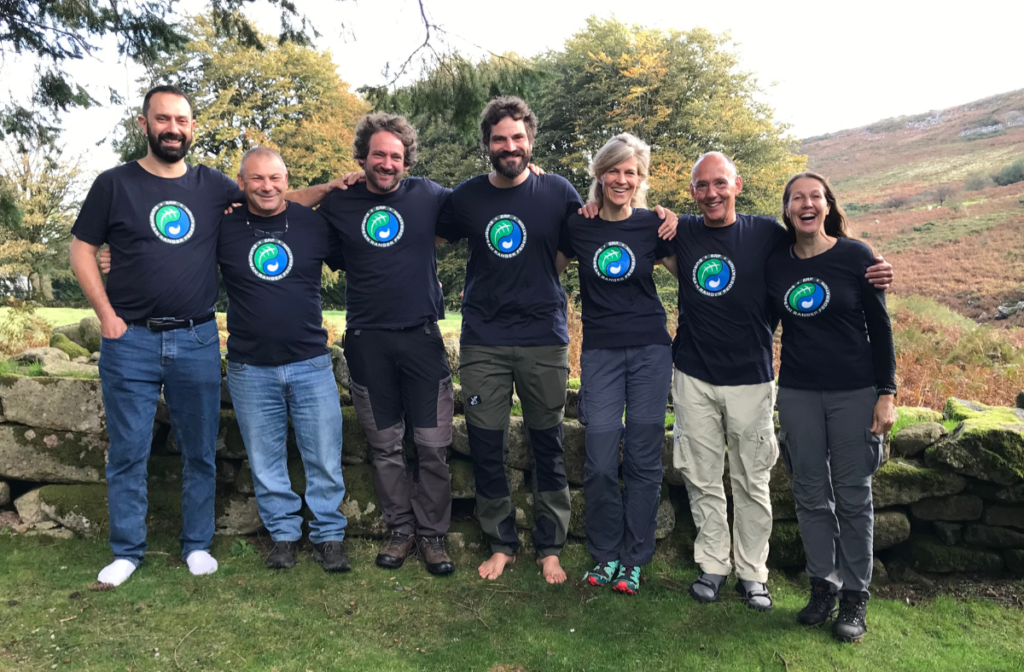
Special thanks go to former ERF Vice President Ian Brooker who, together with his partner Claire, perfectly organised the workshop on site, to the Thin Green Line Foundation UK for contributing to the workshop by providing important insights into global conservation policy, and to Dartmoor National Park for presenting its ranger work and supporting our catering.
Workshop & editorial work
for this content is supported by
